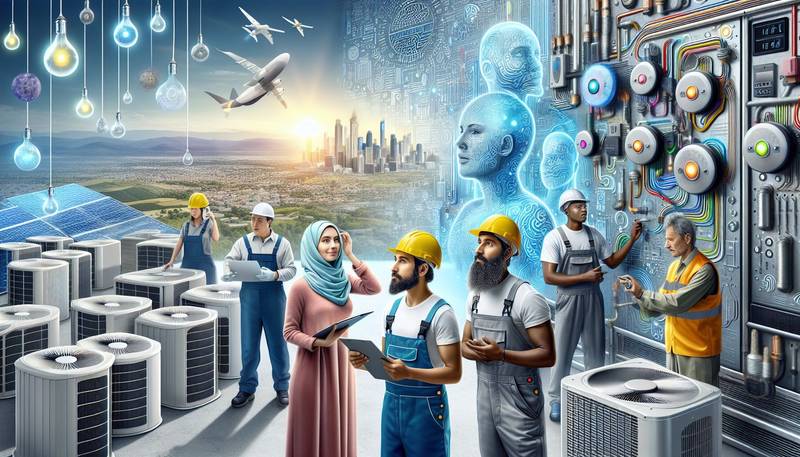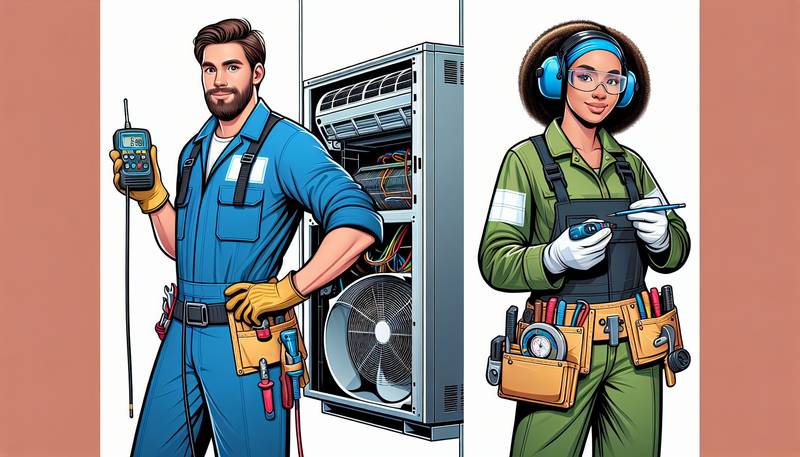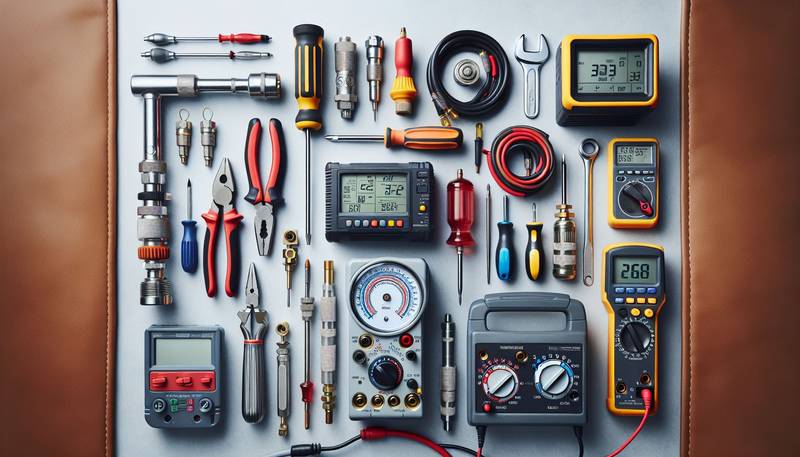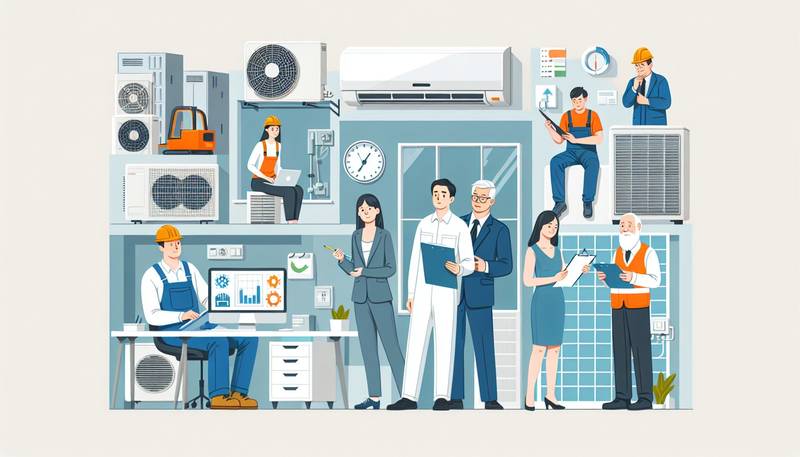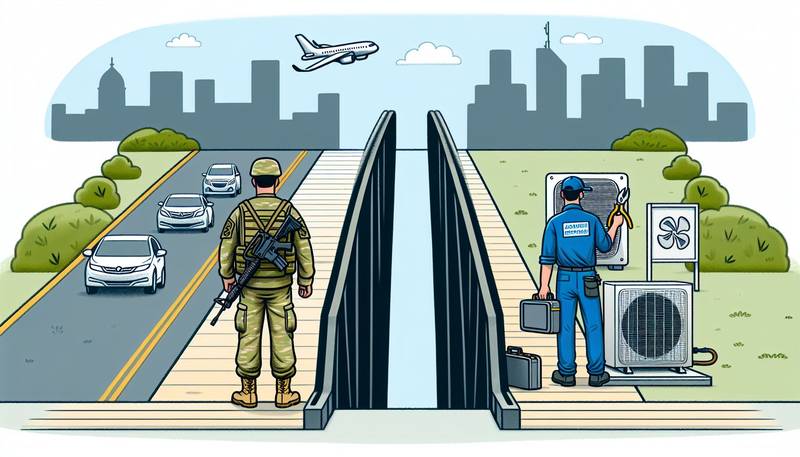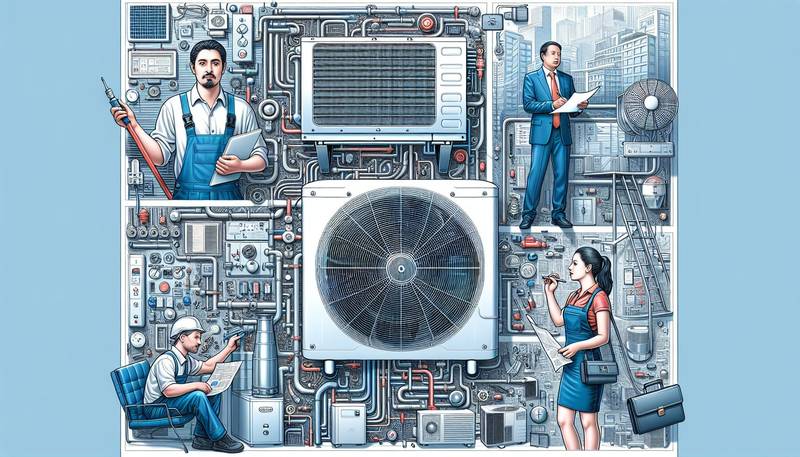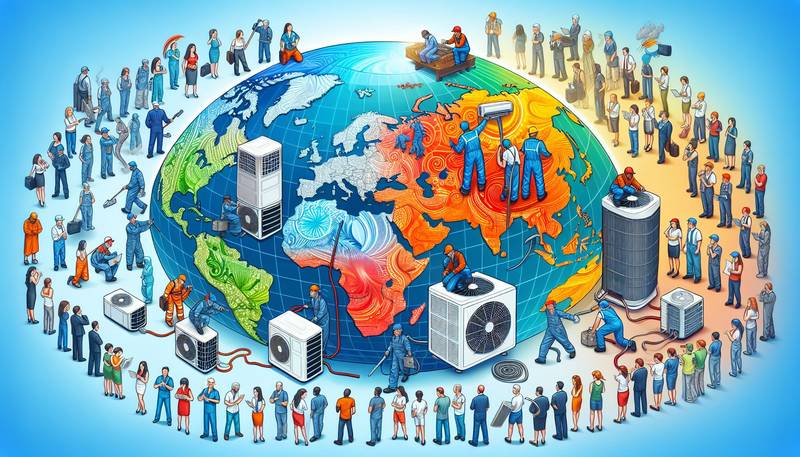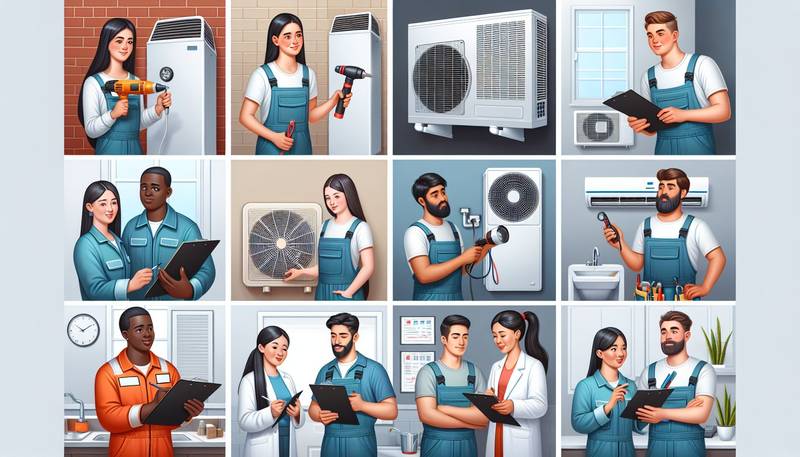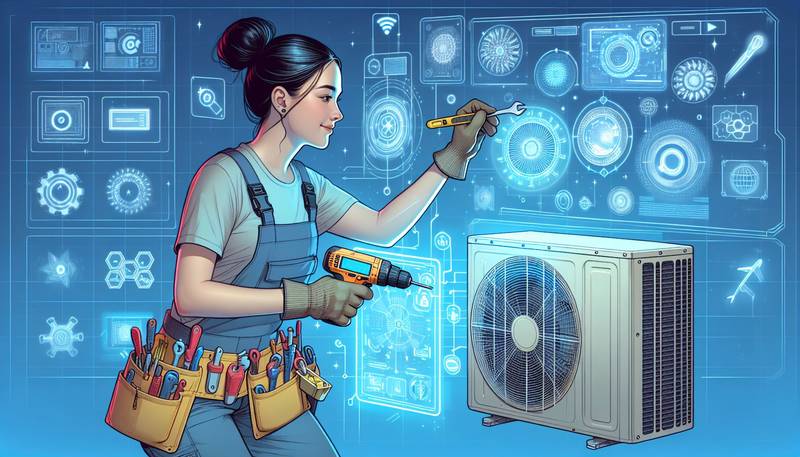Navigating the Future of HVAC: Emerging Opportunities in Air Condition Jobs
With the increasing demand for energy-efficient and eco-friendly heating, ventilation, and air conditioning (HVAC) systems, the future of the industry looks promising for those looking to carve out a successful career in this ever-evolving sector.
The Rise of Smart HVAC Systems
One of the most notable trends in the HVAC industry is the rising prominence of smart HVAC systems. These systems leverage digital technologies such as sensors, internet connectivity, and artificial intelligence to optimize energy efficiency, enhance comfort levels, and enable remote monitoring and control. As smart HVAC systems become more prevalent in both residential and commercial settings, there is a growing need for technicians with specialized expertise in installing, servicing, and maintaining these advanced systems. This shift towards smart HVAC solutions is expected to drive the demand for skilled professionals in the field.
Opportunities in Energy Efficiency
Energy efficiency has become a central focus in the HVAC industry, with consumers and businesses alike seeking to reduce energy consumption and lower operating costs. As a result, there is a heightened demand for HVAC professionals who can help clients achieve these energy-saving goals. From conducting comprehensive energy audits to recommending and implementing energy-efficient solutions, HVAC technicians play a crucial role in enhancing the energy efficiency of buildings. Professionals who specialize in energy-efficient HVAC systems are well-positioned to capitalize on the growing market demand for sustainable heating and cooling solutions.
The Shift Towards Sustainable Cooling Options
In response to the increasing awareness of environmental sustainability and climate change, the HVAC industry is witnessing a shift towards eco-friendly cooling options. Innovative solutions such as geothermal heat pumps, solar-powered air conditioners, and energy-efficient HVAC systems are gaining traction as consumers and businesses prioritize environmental responsibility. HVAC companies are actively developing and promoting sustainable cooling alternatives to reduce the environmental impact of traditional cooling systems. HVAC technicians who possess the skills and expertise to install and maintain these sustainable cooling options are likely to be in high demand as the industry continues to prioritize green technology.
The Importance of Continuing Education
As the HVAC industry evolves and adapts to new technologies and regulations, ongoing education and professional development are essential for HVAC technicians to remain competitive in the job market. Continual advancements in HVAC systems and industry standards necessitate that professionals stay current with the latest trends and best practices. By investing in continuing education programs, pursuing relevant certifications, and participating in specialized training courses, HVAC technicians can broaden their skill set, enhance their knowledge base, and stay ahead of industry advancements. By proactively engaging in professional development initiatives, HVAC professionals can position themselves for success in a rapidly evolving industry.
Conclusion
The future of HVAC presents a wealth of opportunities for individuals pursuing careers in air conditioning jobs. From the increasing adoption of smart HVAC systems to the growing demand for energy-efficient and sustainable cooling options, the industry is poised for significant growth and innovation. By staying informed about emerging trends, investing in ongoing education and training, and honing their expertise in cutting-edge technologies, HVAC technicians can navigate the evolving landscape of the industry and thrive in their careers. The potential for growth and success in the field of HVAC is abundant for those willing to embrace change and seize the opportunities that lie ahead.
